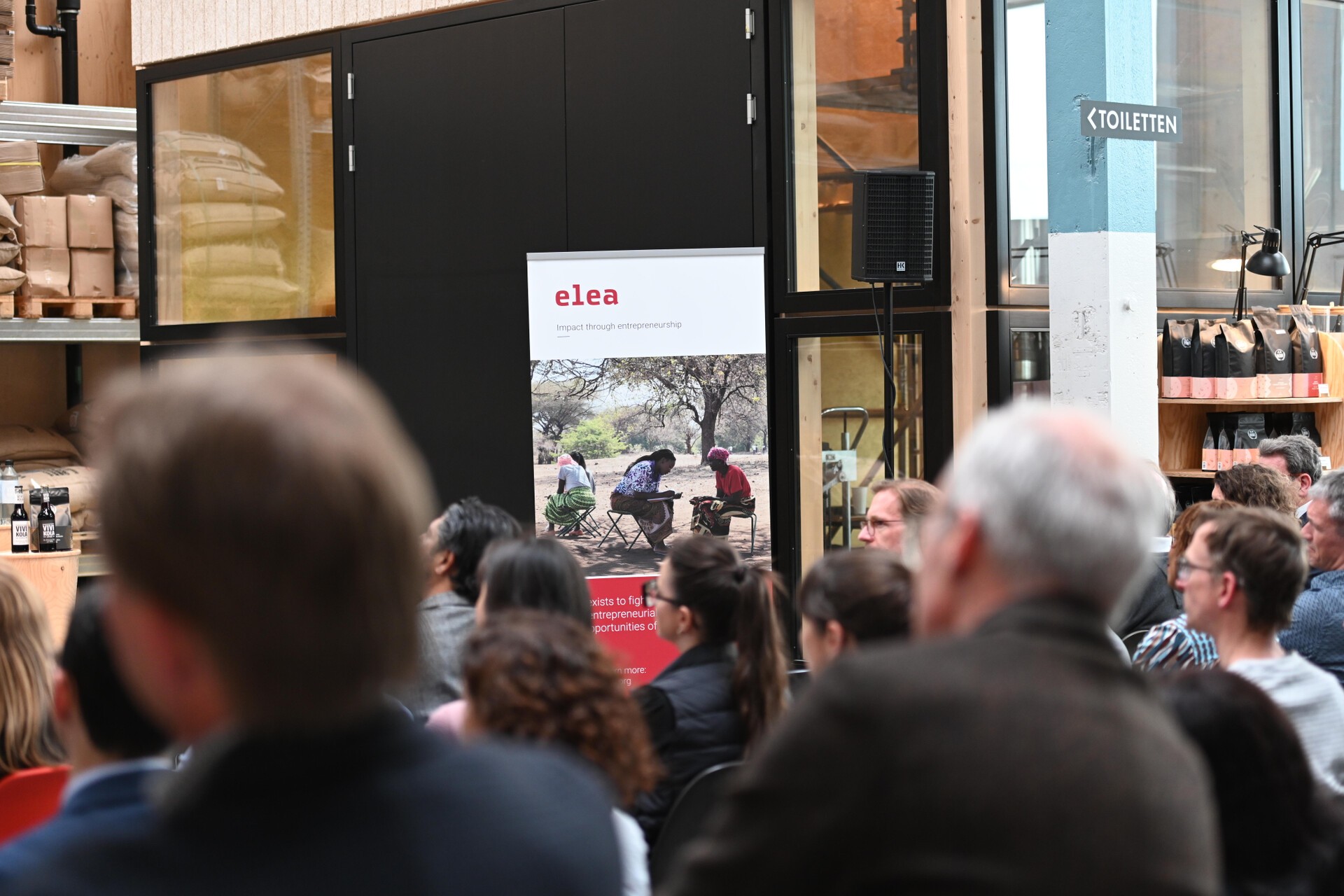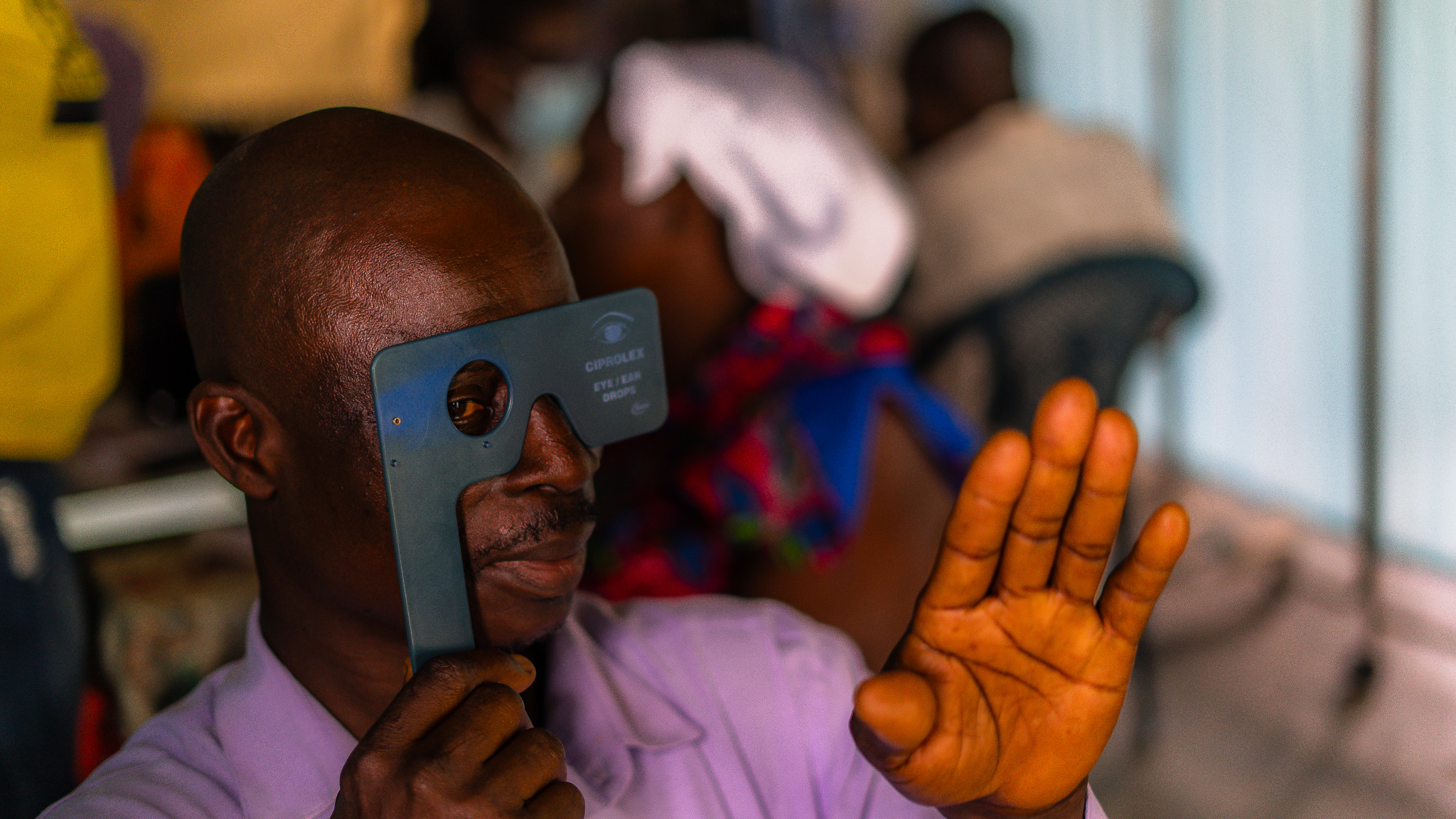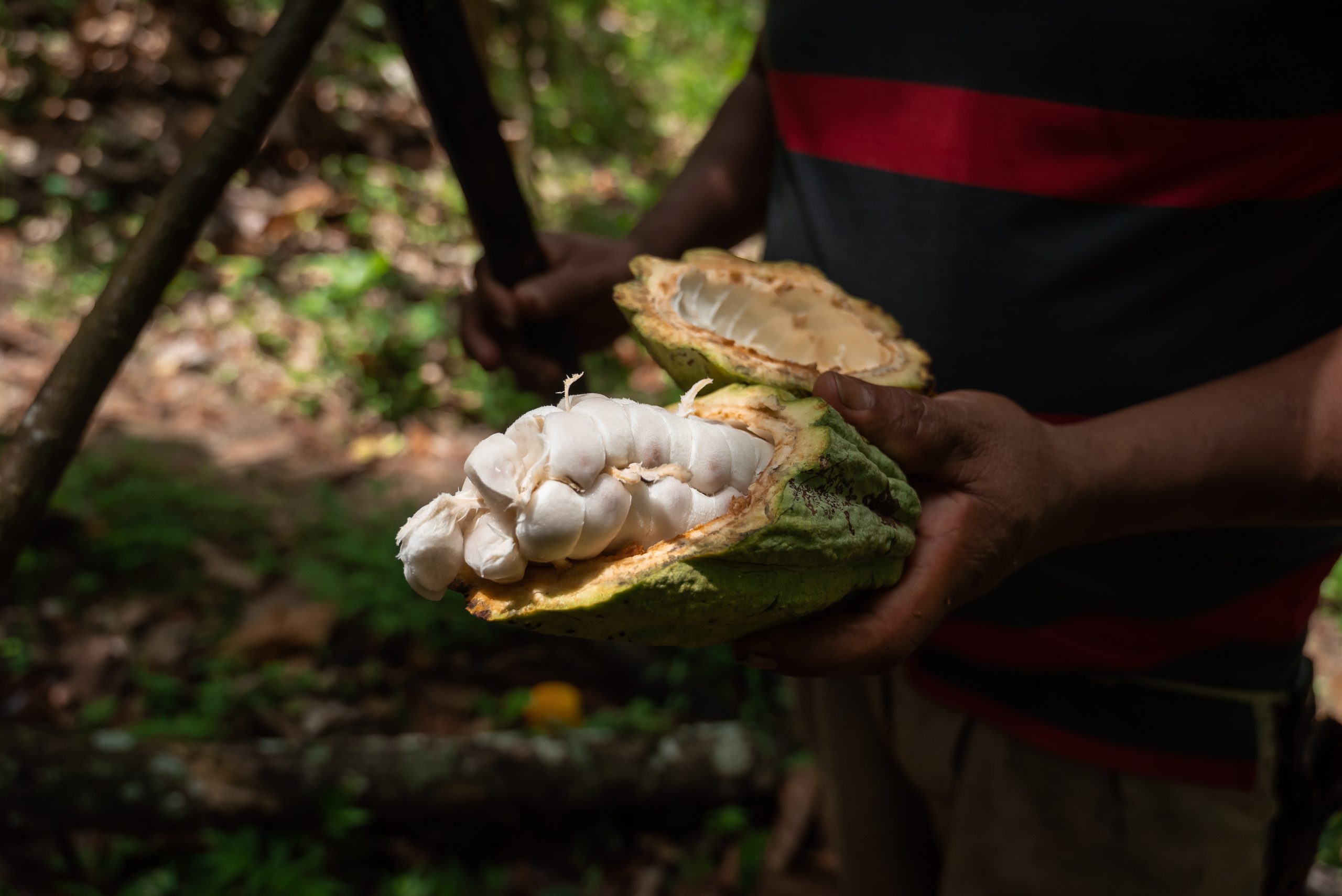Strength in Symbiosis: What We Learned from the Second Elucid Social Club Meeting

What Does It Take to Build Resilient Farming Communities?
Last month, we hosted our second gathering of the Elucid Social Club at the ViCAFE Roastery in Zurich, in collaboration with our investor and board member elea. The event brought together people from philanthropy, business, and global health to explore a shared question:
What does it take to create scalable, sustainable impact in farming-based supply chains?
One theme that came up again and again was the importance of trust.
Trust between partners. Trust from farmers. And trust in approaches that align social outcomes with business value.
Below, we’ve captured a few key takeaways from the evening – and why we see the Elucid Social Club as a space for shaping new ideas at the intersection of health, impact, and supply chain sustainability.
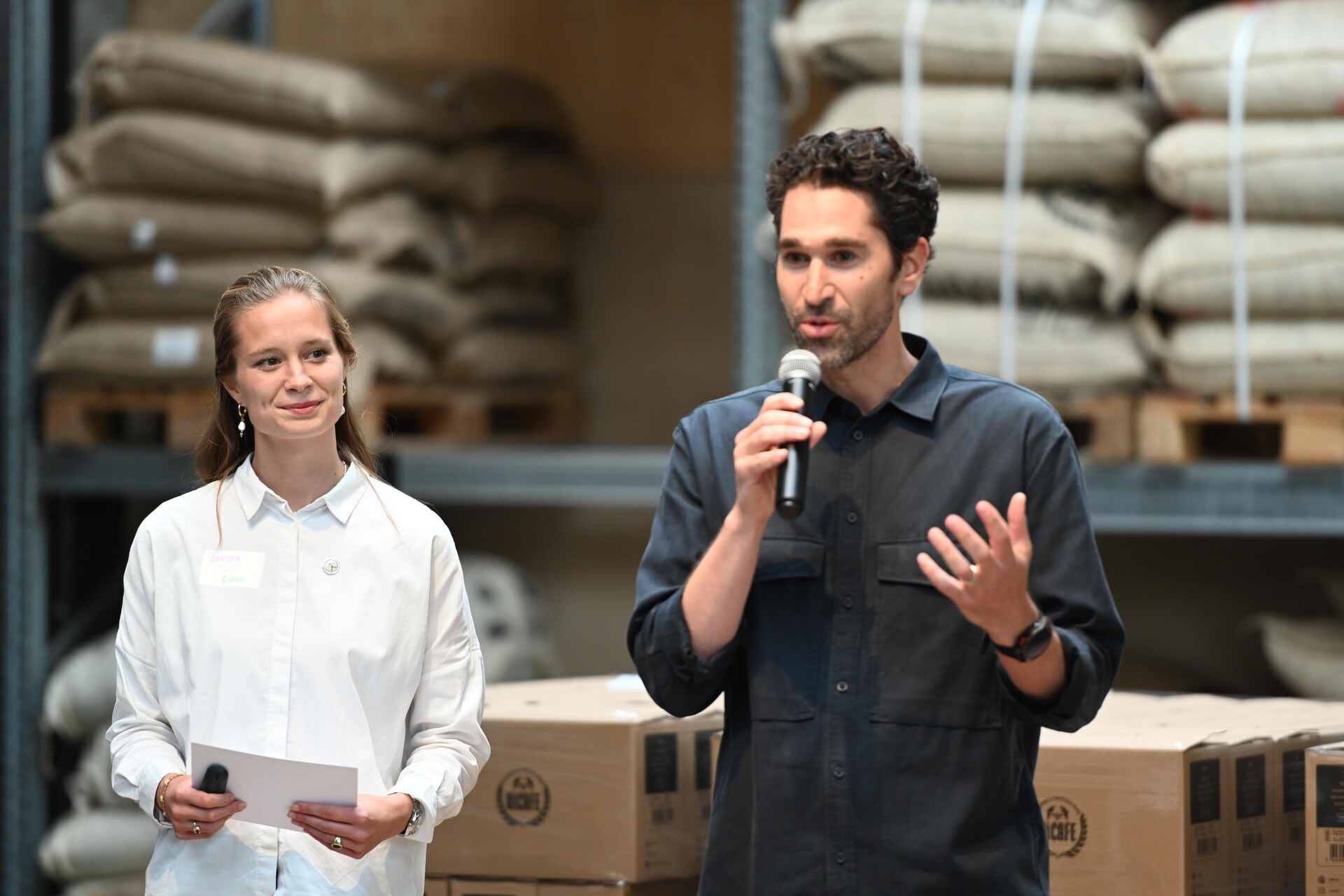
Key learnings from the second Elucid Social Club
1. Reducing Household Expenses = Increasing Resilience
Sustainability is no longer just about income – it’s about household resilience.
As Angela Tejada Chavez from Hershey’s put it:
“We need resilient farms… but we also need resilient farmers. And that’s where this partnership with Elucid kicks in.”
Health shocks are among the biggest threats to farmer stability. When families face medical costs, they often can’t reinvest in their land, send kids to school, or even afford food. Over time, these shocks push families deeper into poverty – and weaken the supply chains they sustain.
Reducing healthcare costs isn’t a nice-to-have. It’s a strategy for long-term viability and resilience.
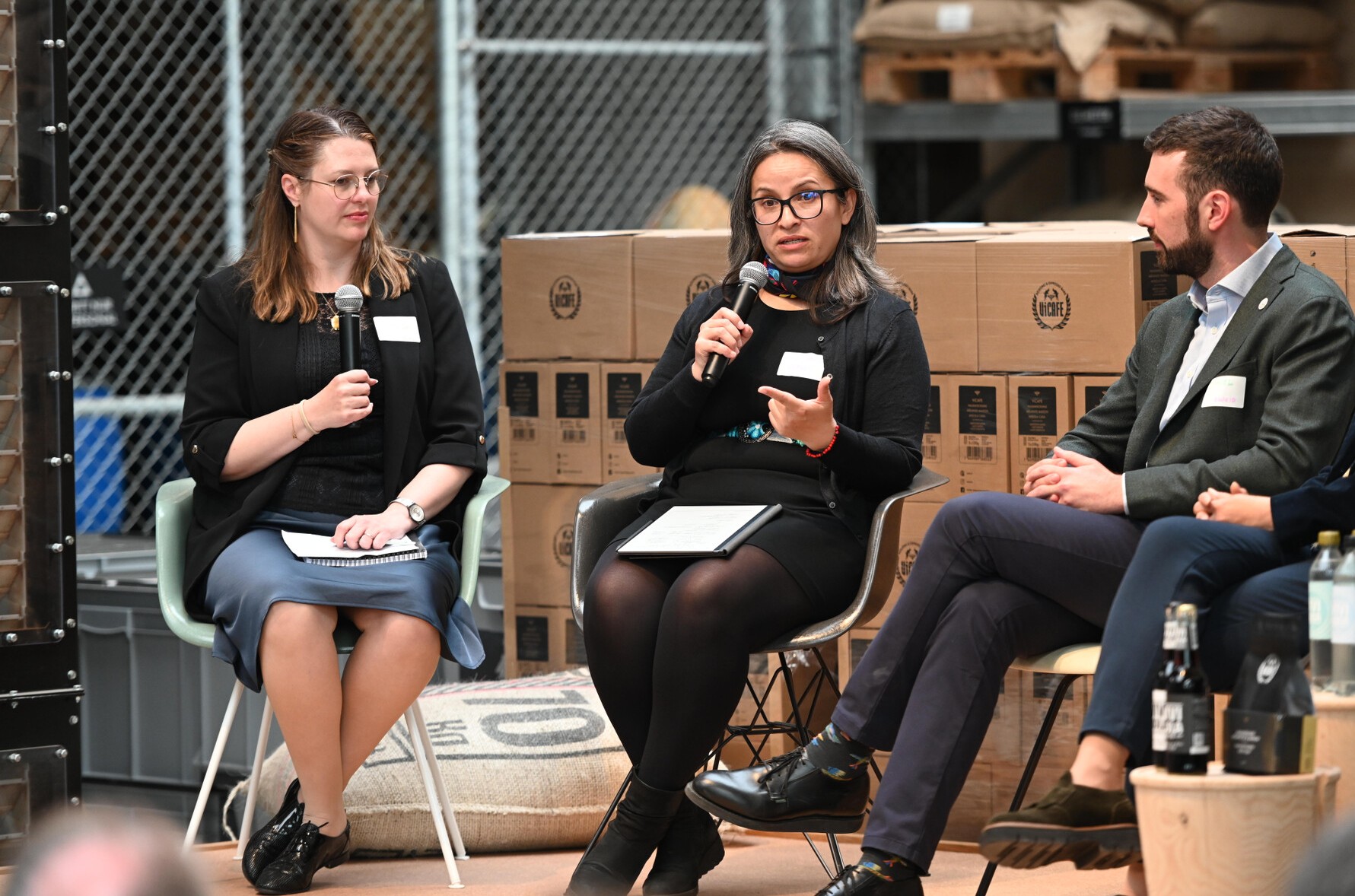
2. There’s a Business Case for Health
Farmer turnover can reach up to 40% annually in some supply chains, resulting in constant re-training, loss of expertise, and disrupted delivery schedules. This isn’t just a logistical headache – it’s expensive.
What we’re learning, both from external research and our own data, is that access to healthcare changes this dynamic.
Health coverage acts as a powerful fringe benefit – it builds loyalty, reduces the likelihood of farmers dropping out, and strengthens their sense of security and partnership. When farmers know their families are protected, they’re more likely to stay, more willing to invest in their farms, and more focused on improving quality and yields.
Companies like The Hershey Company see that healthcare improves farmer retention, reduces volatility, and allows for longer-term planning and impact. It turns short-term transactions into long-term relationships.
Put simply: investing in farmer health helps protect your supply chain from within.
One of the standout topics from our panel with Elucid, UBS Optimus Foundation, and Hershey was the strategic role of blended finance in scaling social impact.
Philanthropy isn’t just about funding – it plays a catalytic role. It can take on early-stage risk, support piloting of new models, and generate the kind of rigorous evidence needed to attract longer-term, market-based capital. Philanthropic funding can also be used to align incentives, build shared infrastructure, and ensure community voices are included from the start.
As elea put it:
“True scale requires multi-stakeholder partnerships where several buyers, governments, and foundations come together.”
At Elucid, we’ve seen how this works in practice: philanthropy de-risks innovation, which encourages private companies like Hershey to invest – and when that happens, it builds confidence across the ecosystem, drawing in others and accelerating impact.
Blended finance isn’t just a funding mechanism – it’s a way to build trust, align interests, and create the conditions for scale.
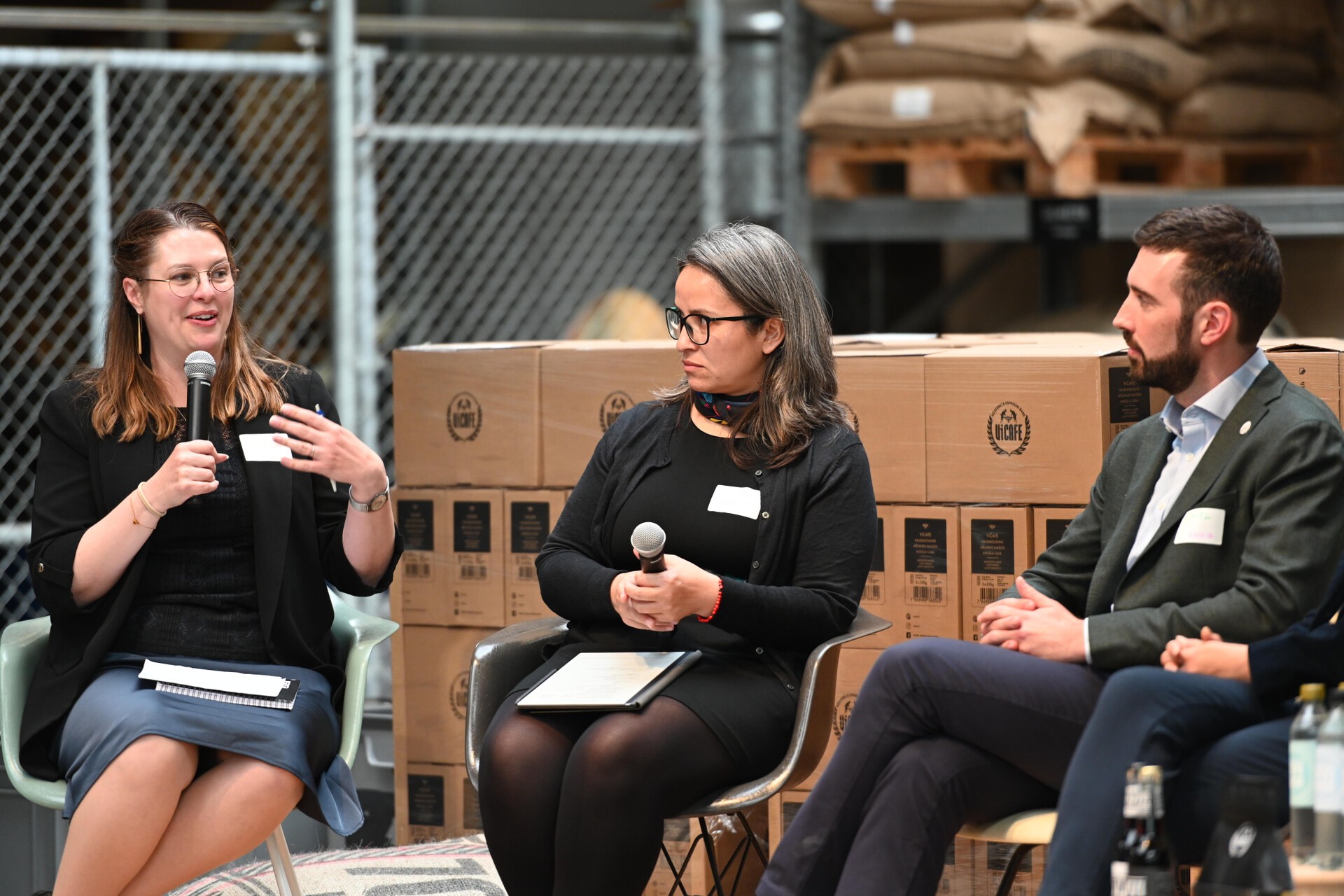
4. Collaboration > Siloed Action
Challenges like poverty, health insecurity, and climate stress don’t exist in isolation – and neither should the solutions. Tackling them requires collaboration across sectors, with aligned goals, timelines, and accountability.
Each actor brings something vital: governments offer policy support, NGOs bring community trust, and companies contribute tools, infrastructure, and innovation. Together, they can achieve more than anyone could alone.
As Markus Beck from Gavi noted, private sector partners can strengthen public health systems with technologies like biometrics, drone delivery, and digital vaccine tracking.
Our partnership with Gavi shows the power of alignment: when sectors work together, scalable, last-mile solutions become possible.
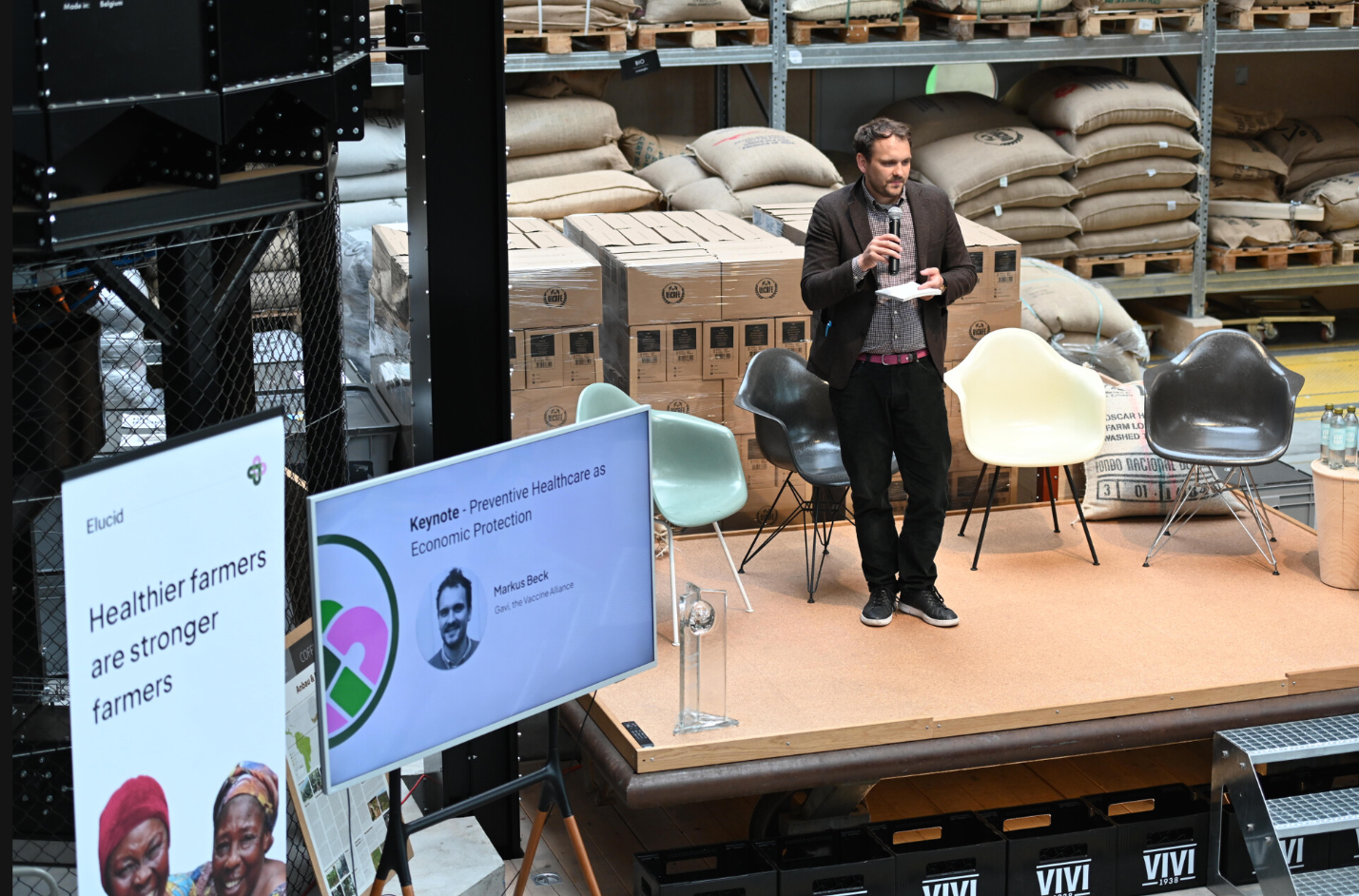
Looking Ahead
The Elucid Social Club is more than a conversation space – it’s a platform for bold ideas, real-world testing, and unlikely alliances, which have come to life in our previous meetings in February and our most recent gathering in April!
A big thank you to our co-host elea, and to our partners Gavi, UBS Optimus Foundation, and The Hershey Company – as well as everyone who joined us in Zurich to push the conversation forward.
Curious to be part of what’s next? Whether you’re from a foundation, a supply chain team, or an impact fund – we’d love to connect.
Let’s keep building. Join us at the next Elucid Social Club.
